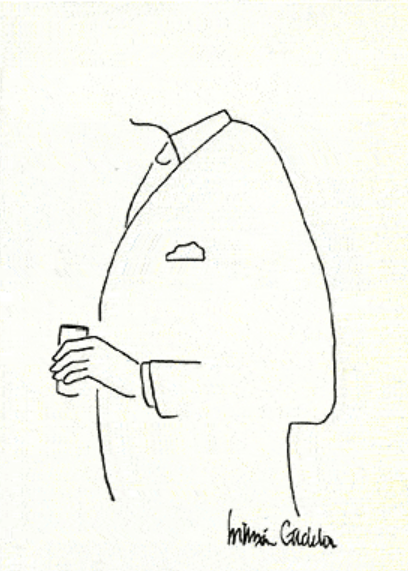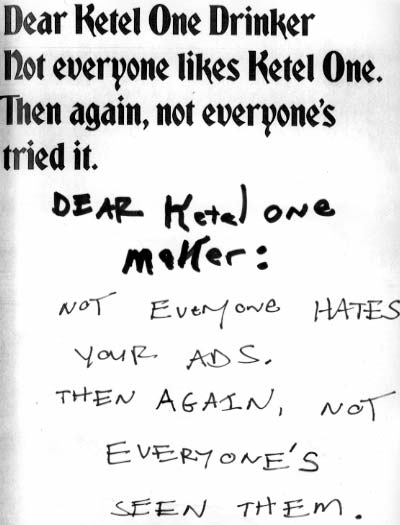TONIGHT IN BROOKLYN: Melville House hosts ‘Publishing In The Age of Blah Blah Blah.’
 ONE DAY ONLY: In conjunction with Obama’s State of the Union Address tonight (9 pm EST), Wave Books is offering a supreme discount on the REAL address: STATE OF THE UNION: 50 POLITICAL POEMS, featuring poems by 50 contemporary poets (John Ashbery, Anselm Berrigan, Lucille Clifton, CAConrad, Peter Gizzi, Albert Goldbarth, Terrance Hayes, Fanny Howe, Tao Lin, Eileen Myles, Michael Palmer, Wang Ping, Richard Siken, Juliana Spahr, James Tate, Catherine Wagner, Joe Wenderoth, Dara Wier, Rebecca Wolff, John Yau and many more). $5 for a softcover edition, available only through the Wave website here.
ONE DAY ONLY: In conjunction with Obama’s State of the Union Address tonight (9 pm EST), Wave Books is offering a supreme discount on the REAL address: STATE OF THE UNION: 50 POLITICAL POEMS, featuring poems by 50 contemporary poets (John Ashbery, Anselm Berrigan, Lucille Clifton, CAConrad, Peter Gizzi, Albert Goldbarth, Terrance Hayes, Fanny Howe, Tao Lin, Eileen Myles, Michael Palmer, Wang Ping, Richard Siken, Juliana Spahr, James Tate, Catherine Wagner, Joe Wenderoth, Dara Wier, Rebecca Wolff, John Yau and many more). $5 for a softcover edition, available only through the Wave website here.
Bio envy

Self Portrait, William Gaddis
If you’re going to write a book, who asked you to? It is, in fact, quite an act of ego to sit down in a room, while others are getting on trains and subways, and put one’s vision on paper, and then ask others to pay to read it. Not only to pay but say, “Isn’t he brilliant.”
— William Gaddis (1980)
Seems hypocritical since, um, he wrote a bunch of books, and thick as hell I might add. It is interesting that he evokes transportation to work (trains, subways, etc.), as he struggled at a full-time job (he was a clerk at a law firm) during his early career. A little resentment goes a long way, as if Gaddis is solemnly nodding to his past approvingly, almost preferring his indignation.
In author bios, you never read “[So and so] works at [company name] as a [profession],” apprehensive about the “reality” of one’s day job, as (unless you’re successful or broke) most of us have. Good for the adjunct, lecturer, or professor who teaches writing, seriously, I mean that. But the unspoken thing is most of us have unrelated day jobs, which is never mentioned, ignored like Down syndrome.
Webaround
 Dennis Cooper’s blog today: “Four Books I’ve Loved Recently: The Ask by Sam Lipsyte, Marsupial by Derek White, A Common Pornography by Kevin Sampsell, and Stories II by Scott McClanahan.” Also, don’t miss yesterday’s “17 examples of how musicians conflate the terms ‘mawkish’ and ‘arch’ with varying degrees of success.”
Dennis Cooper’s blog today: “Four Books I’ve Loved Recently: The Ask by Sam Lipsyte, Marsupial by Derek White, A Common Pornography by Kevin Sampsell, and Stories II by Scott McClanahan.” Also, don’t miss yesterday’s “17 examples of how musicians conflate the terms ‘mawkish’ and ‘arch’ with varying degrees of success.”
From Salon, an article on Bloomsbury’s newest case of the white-outs. “Publishers whitens another heroine of color.” (You might remember that we bugged out about this the last time it happened too.)
Here’s an introduction to “The Secret History of Typography in the Oxford English Dictionary.”
From Jeremy Schmall- Rick Steves on Haiti.
Check out this rad new feature/series at Portland-based Wieden+Kennedy called Story Time, which produces “recorded readings of short stories by published young authors set to soundscapes.” Trinie Dalton is episode #1, Kevin Sampsell’s #2, and that’s all that there is so far, but we’ll be (duh) keeping an eye on these guys, and one hardly doubts that there’s more great stuff ahead. And what is Wieden+Kennedy exactly? They say: “We are an arts and culture digital content delivery platform, a subsidiary of advertising agency Wieden+Kennedy. Our goal is to renegotiate the relationship between art, media, advertising and the consumer.” Ahh, okay then. To help further advance negotiations, you might also check out their other series, Don’t Move Here: Inside Portland’s Music Scene.
Droll Joc Tom Rail
 The sky is cold/clod in Indiana. I feel low 3-cornered like the sky. I want a funny book. My kidney stones to rattle. I want to blow Pepto Bismol out my nose.
The sky is cold/clod in Indiana. I feel low 3-cornered like the sky. I want a funny book. My kidney stones to rattle. I want to blow Pepto Bismol out my nose.
Tell me a funny book. Blue, black, red, anecdotal, satire, wet, dry, corn cob, slapstick, repartee, funny-but-not-ha-ha funny, hyperbolic, galactic, etc.–just give me humor.
Here is one for you: Iceland by Jim Krusoe. It is smart funny, scaffold funny, full of absurd twists. Characters will appear as Main, then dropped into volcanoes and we yawn on. It has funny SCUBA sex (one of the best varieties). It has pacing like 50 pages for an afternoon, whoops 10 years just gassed in a paragraph. One day you repair typewriters. The next you rob gas stations for your drug-addicted lady. Or maybe a parrot. Like that.
You people read loops around my House of Know-How, so please list here funny books:
The very generous Brad Green has offered to award a copy of Molly Gaudry’s We Take Me Apart to an HTML Giant reader of choice. Because the book is so persuasive in the way it links childhood space with food and movement of time, comment with a food that evokes some long memory of yours. A selected winner gets the book late tomorrow evening.
Common tactics employed by HTMLGIANT commenters, as abridged via Ketel One ad responses

1. Passive Aggressive
If you were teaching a class on American experimental fiction, what texts would you choose, and why?
My apologies to Jereme, who recently commented something along the lines of “htmlgiant is like a teacher’s lounge,” but since I spent the weekend putting together course proposals for next year, I thought I’d share one of the possible reading lists I devised for my “Introduction to American Experimental Fiction” course. You’ll notice that all of the selections are on the shorter side <300 pages. This is crucial, so that I can cover a bunch of different texts. Nothing is set in stone yet, so I would love to hear what you would add or subtract from this list, and why:
Ishmael Reed – Mumbo Jumbo
William S. Burroughs – The Soft Machine
Kathy Acker – Blood and Guts in High School
Carole Maso – Aureole
Jean Toomer – Cane
David Markson – This Is Not A Novel
Gertrude Stein – Tender Buttons
Ben Marcus – The Age of Wire and String
*As a bonus, my wife found this cool database of syllabi for American Lit courses from professors at various universities (including a Poetics syllabus from Susan Howe for a course on “Sexuality and Space in 17th – 19th Century American Literature.”
The ’70s Dimension
httpv://www.youtube.com/watch?v=M1I7Vrq0qU4
Thank you, Craig Baldwin.

